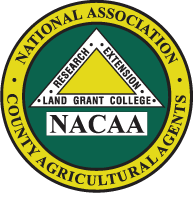REGIONAL APPROACHES TO CLIMATE CHANGE IN PACIFIC NORTHWEST AGRICULTURE
Proposed by: Aaron D Esser
Presenters: Esser, A. D., Extension Agronomist, Washington State University, Ritzville, WA 99169
Abatzolgu, J.T., Assistant Professor, Department of Geography, University of Idaho, Moscow, ID 83844
Borrelli, K, REACCH Extension Specialists, University of Idaho, Moscow, ID 83844
Eigenbrode, S, REACCH Project Director, Department of Entomology, University of Idaho, Moscow, ID 83844
Kruger, C. E., Director, WSU Center for Sustaining Agriculture and Natural Resources, Wenatchee, WA 98801
Some of the most productive wheat land in the world can be found in the inland Pacific Northwest region (IPNW). The tremendous importance of cereal-based agriculture greatly impacts local economies and influences regional culture and communities. The REACCH, Regional Approaches to Climate Change, project is designed to enhance the sustainability of cereal production systems in the IPNW under ongoing and projected climate change, while contributing to climate change mitigation by reducing emission of greenhouse gasses. It is projected that warmer summers and wetter winters will dominate the IPNW, and shift production zones and create a new zone that has not existed in our region before. How will wheat production systems need to change to adapt to this shift? REACCH is a comprehensive response to this projected climate change for the already challenging task of managing cereal production systems for long-term profitability. Scientists from many disciplines including engineering, climate science, agronomy, sociology, economics and extension, are working together in a transdisciplinary approach to ensure greater relevance of information to regional cereal farmer and their associates. Our aim is to conduct the best agricultural science relevant to regional climate productions and needs for adaptation and mitigation, and extend this science to stakeholders.
